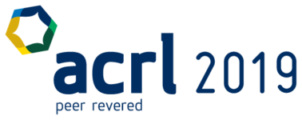Session Description:
How can academic librarians improve reference services for marginalized students? How can research into library use center students’ ideas and lived experiences? These questions were investigated through the use of Photovoice, a participatory method that combines photography, interviews, and group discussion to create change regarding an issue. Attendees will gain insight into how 11 undergraduate students from historically marginalized backgrounds seek information in their everyday and academic activities, and learn about students’ recommendations and potential implications for the development and redesign of reference services.?
